---------------------------------------------------------
You may have heard the best defense is a good offense. Well, the best way to handle a sick duck is to try and keep it healthy. Providing plenty of fresh, dry feed (not allowing it to get soggy & moldy), giving them lots of clean water to drink & swim in, and keeping their house & yard clean and in good repair is the easiest way to have healthy, happy ducks.
But even healthy ducks will sometimes get sick, or an injury will require medical attention. A well-stocked first aid kit is something every responsible animal owner should have. What items might your duck friends need in an emergency? You will find many of the items that are helpful in a chicken first aid kit (click here to read about my chicken first aid kit) will also pull double duty for your ducks if you keep both types of poultry.
** REMINDER – I am not a veterinarian, just an animal owner & lover sharing my opinions and experiences. Any advice on caring for animals or diagnosing & treating medical conditions for animals is for informational purposes and should be evaluated by a trained veterinarian.**
Hospital Ward
The first thing you want to have handy is a hospital ward for isolating sick birds. If you can remove the duck from her flock at the first sign of illness, hopefully, you can prevent it from spreading. You’ll want to keep the sick bird at least 30-40 feet away from the flock. If you have space in your basement, garage, or shed that could be an ideal place to set up your hospital ward. Our hospital coop is a mini coop we built out of scrap lumber (click here to see how we built it), but an old dog crate would also work. Anywhere the bird is safe from predators, is somewhere you can keep an eye on her, and has ample fresh water & feed would work.
General First Aid Supplies
Start by stocking your duck first aid kit with general first aid supplies like disposable gloves, non stick gauze pads, a small dropper or syringe, small scissors, small nail clippers
Caring for Missing Feathers
A common injury with female birds, especially in spring, is missing feathers along the back of her head. During mating, the drake will hold onto the female by the back of her neck/head. Sometimes a drake will have a favorite female and aggressive over-mating can cause a bald spot to form. Sometimes there are just too many drakes and not enough females. You should try to have 3-4 females for every one drake so he can evenly spread out his “affections”.
If the spot looks tender or is bleeding, you should either separate the affected female or separate the male until the female’s head has healed. If the skin is bleeding, you can spray the area with Vetericyn. An anti-bacterial spray, Vetericyn is used to clean wounds and treat infections. Vetericyn is safe for almost all animals so it is a really handy product to have on hand for any animal owner. If the wound is actively bleeding, also add some antibacterial ointment and apply a gauze pad and wrap the best you can.
Caring for Foot Wounds
The next most likely injury a duck will receive is to their floppy, webbed feet. Their feet might be perfect for paddling around a pond, but on land, they can be quite awkward. If you notice your duck is limping, pick her up and inspect the foot. She may have stepped on something or otherwise scratched it. This is another great reason to have Vetericyn on hand. If it is just a scratch, spray to clean it, pad the area with a gauze pad and wrap with Vetrap.
Vetrap is a self-adhering bandage used for animals. The great part is it sticks to itself, but not to fur & feathers so it doesn’t cause damage when you need to remove it. If the wound is deeper, you might want to add some antibiotic cream (like Neosporin without pain relief) to the gauze pad before wrapping it. Do not wrap too tightly, you don’t want to cut off circulation, just keep the wound clean!
Bumblefoot
Bumblefoot is a staph infection that can be found in both chickens and ducks. The infection begins as a cut on the foot, as the bird spends her day walking in dirt and poop the cut can get infected. Left untreated it can eventually lead to blood poisoning and death. I like to first try treating it by soaking the bird’s foot in warm water & Epsom Salt to loosen the “kernel” that forms around the infection. Often after a soak, you can wiggle the kernel free. After the kernel is removed, the area should be treated with Neosporin and covered with a gauze pad & Vetrap and changed daily. You should ALWAYS wear disposable gloves when dealing with bumblefoot infections, to prevent the infection from spreading to yourself, and to prevent transferring your germs to the bird.
If your duck is constantly hurting her foot or won’t keep the Vetrap on, they actually make duck boots for just such an occasion (click here for Party Fowl’s shop with custom booties for chickens & ducks)! Formed like duck feet, they are basically shoes for your duck to wear while her wound is healing.
Eye Issues
Ducks need to have access to fresh, clean water at all times. The water is not just for drinking and swimming, but they also must have clean water deep enough for them to dip their whole head in so they can keep their mucous membranes moist (click here to read more about Foamy Eye Disease in Ducks). If your duck develops foamy eye or has other eye irritations, rinse her eyes twice a day with saline solution.
Respiratory Issues
Respiratory problems can arise sometimes hand in hand with foamy eye, or sometimes just on their own, like we would catch a common cold. Separating the sick bird quickly will hopefully stop the spread. Give her immune system a boost by adding electrolytes to her water; Sav-A-Chick is a popular brand that is easy to find at most feed stores. Help her breathing by putting a few drops of Vet Rx under her wing before bed. As she tucks in to sleep the smell will help like a menthol rub will help clear up congestion when humans are sick.
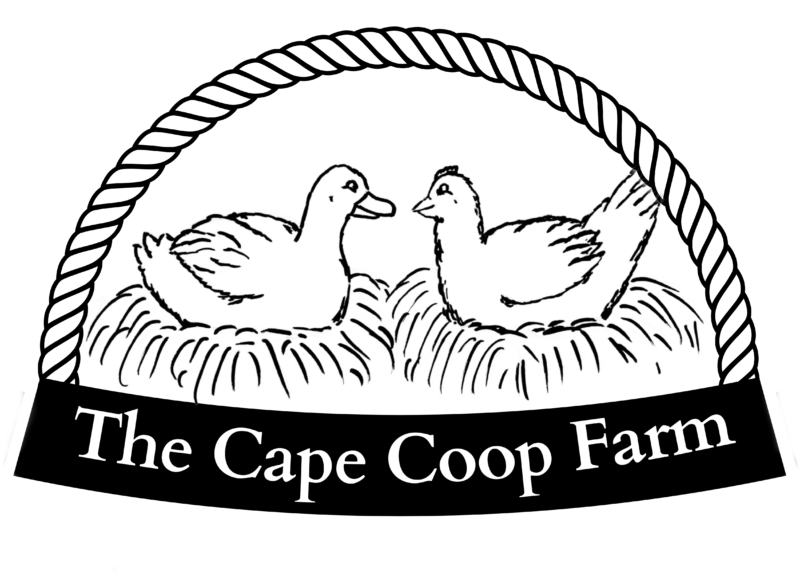
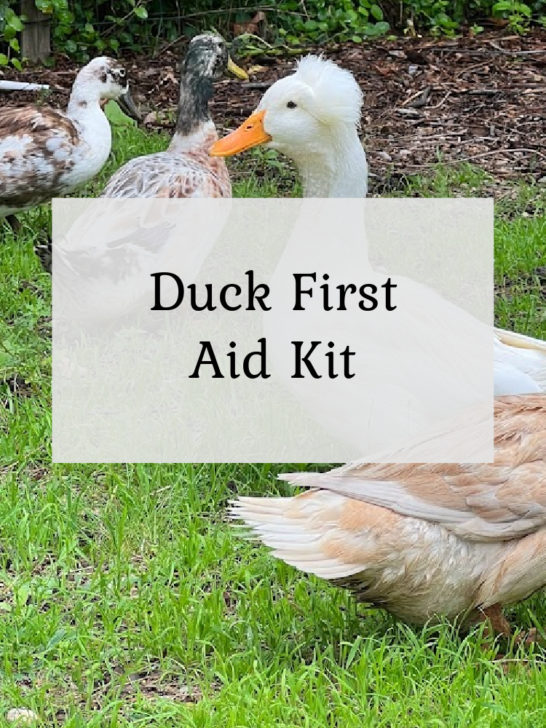

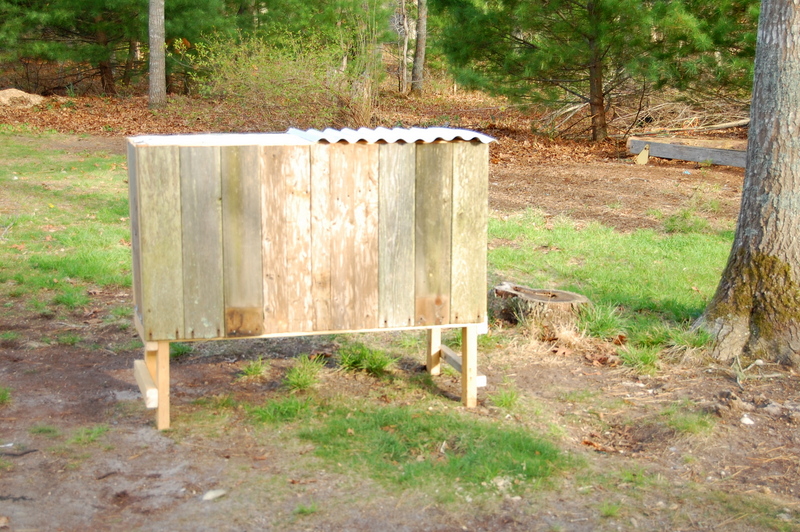
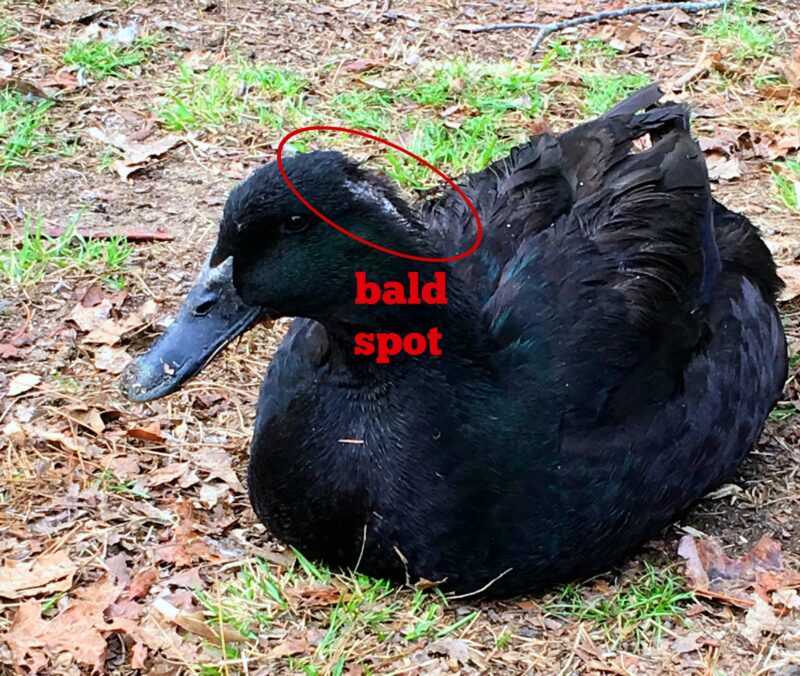
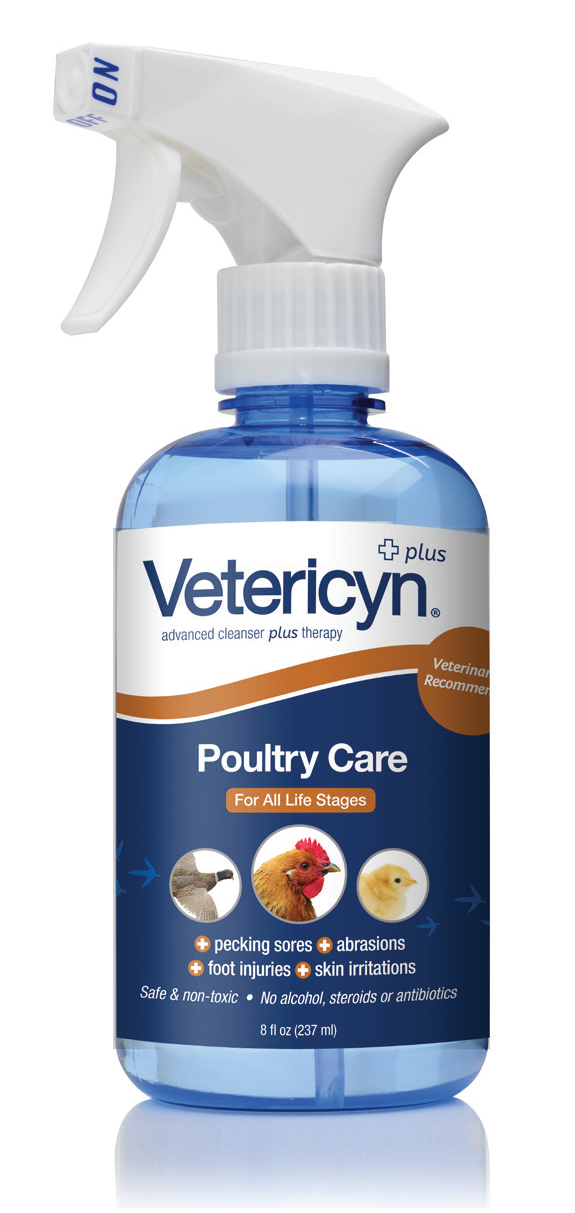
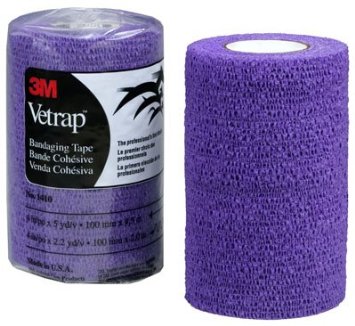
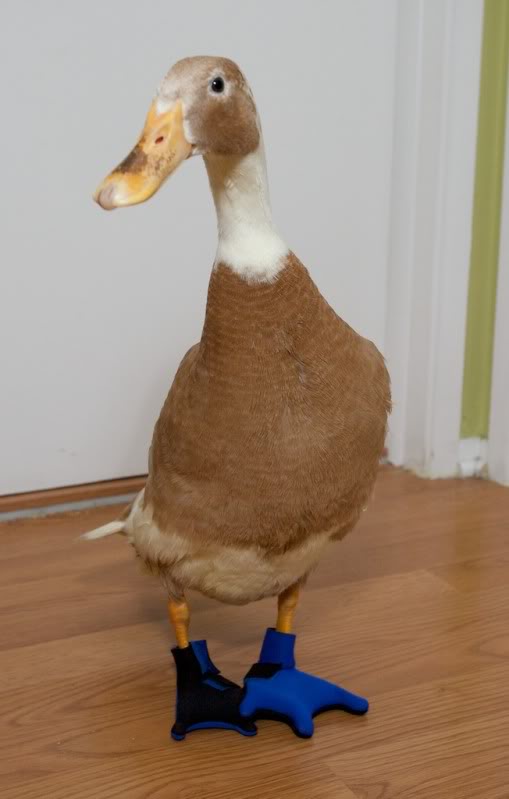
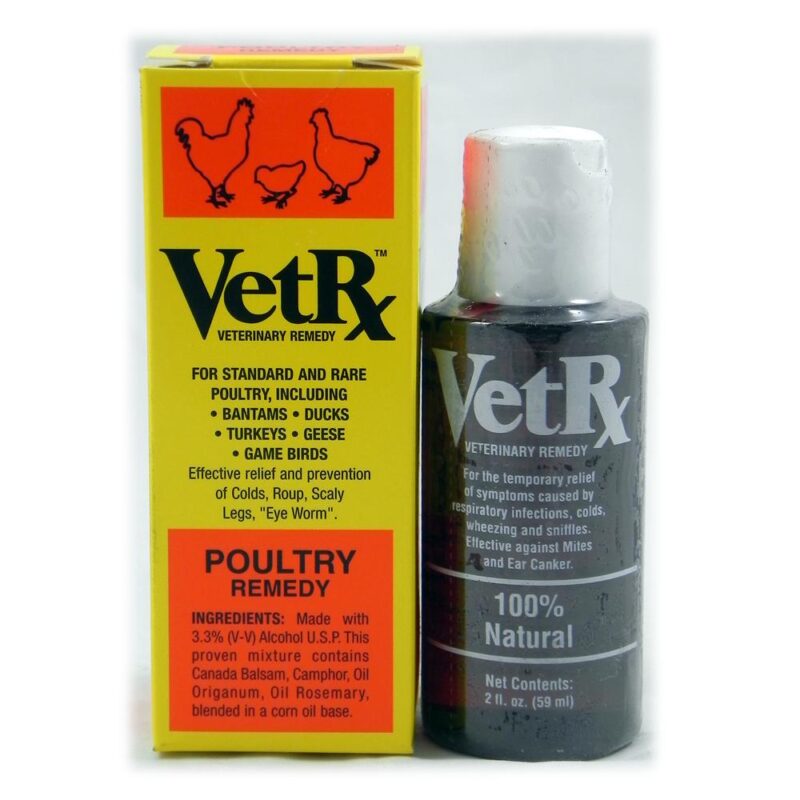
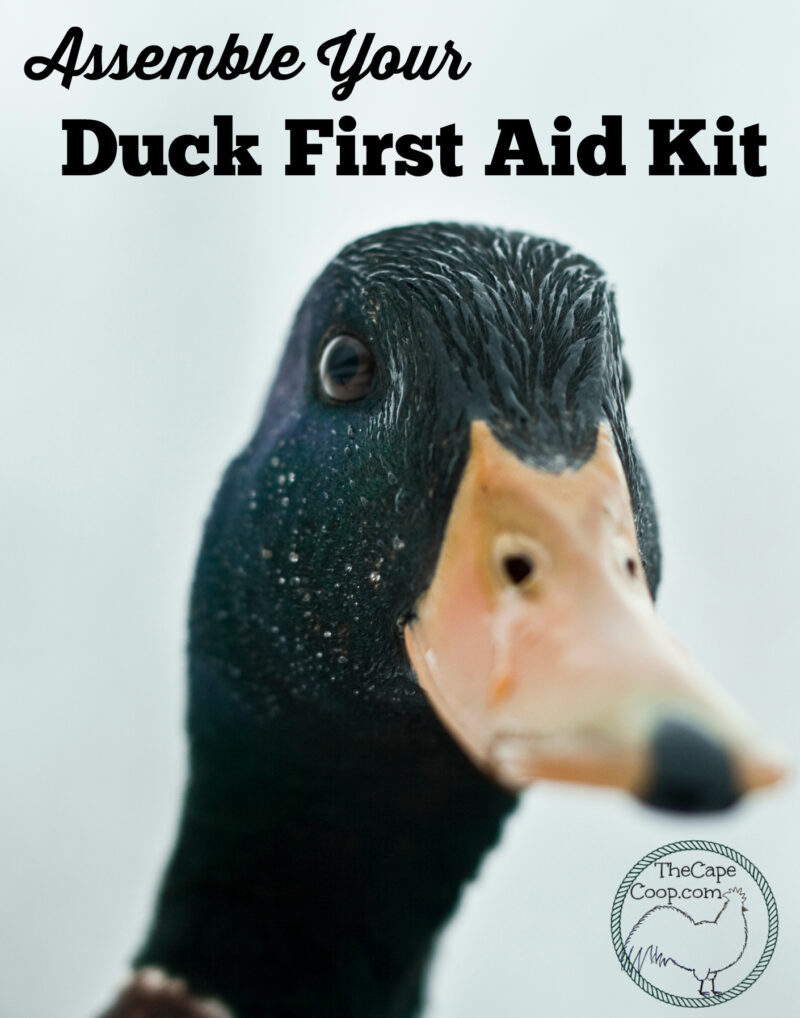
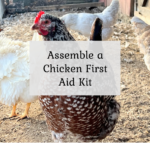


Tina feltner
Friday 21st of July 2023
I found a muskovy duck it's wounded and very tame. I have it in a kennel in my house treating its severe chest wound. Looks like a dog or coyote got it but it doesn't have a voice. No quack it pants. It pants like a dog and wags it's tail.
Liz
Monday 24th of July 2023
poor thing! Panting usually means one of two things - either the duck is overheating or stressed. Since it's in your house it's probably not hot, I imagine the panting is likely from the stress of their injury, pain, and maybe a little scared of being in a new place. But tail wagging is usually a sign of trust and happiness, so I think he knows you are trying to help anyway! Ducks are really resilent, if you can keep the wound clean and keep infection away, hopefully he will make a full recovery. Good luck and thank you for taking care of this little one :)
Louise Fugate
Monday 19th of June 2023
My duck got bit under her wing on her body, probably by a fox. It left her foot hanging. I took her to the vet. No broken bones, but she still hangs her foot and walks on one leg. I have been trying to give her physical therapy by moving her leg up and down and front to back, but she won't walk on it. Should I be doing something else to help her?
Liz
Wednesday 21st of June 2023
Did your vet have any suggestions for rehab? Swimming in a shallow pool or tub is usually a good low impact way for ducks to rebuid strength. It sounds like it was a pretty traumatic injury, she might just need more time
Don
Wednesday 31st of May 2023
I have a duck that I found stuck upside down in between rocks in are garden Don’t know how she got there and don’t know for how long. Still alive and drinks and eats. But hasn’t walked and when try to help her walk she can easily fall over to her back/side. I don’t want it to suffer but don’t know how long I should let it rest? And possibly heal on its own.
Liz
Friday 2nd of June 2023
If this is a wild duck your best bet is going to be contacting a wildlife rescue. They have people trained in caring for sick, injured, or abadoned wildlife. She could have hurt her hip or legs while trying to free herself
CPR Classes Tucson
Saturday 3rd of September 2022
Thank you for sharing this information.
Kelli
Sunday 25th of July 2021
We found an injured Muscovy duck on our walk yesterday, it looks like a dog might have bit her across the back (not fresh wounds kinda scabbed over). Her wing is droopy but she can flap both of them. She obviously belonged to someone and is not wild. We brought her home and posted it in the community Facebook page but so far no one is claiming her. Not sure what to do about her injury. She is eating bananas but we need to buy her some food. Would that Vetericyn be a good product to apply to the wounds? We had ducks years ago here in Hawaii but it’s been a while.
Liz
Wednesday 28th of July 2021
Yes Vetericyn would be great for cleaning the wound, but if it's already scabbed over it's probably not needed. If it hasn't healed all the way, I would definitely either clean it with the Vetericyn or if you can't find that Neosporin without pain relief would also work to keep it clean. Good luck! I hope she makes a recovery!